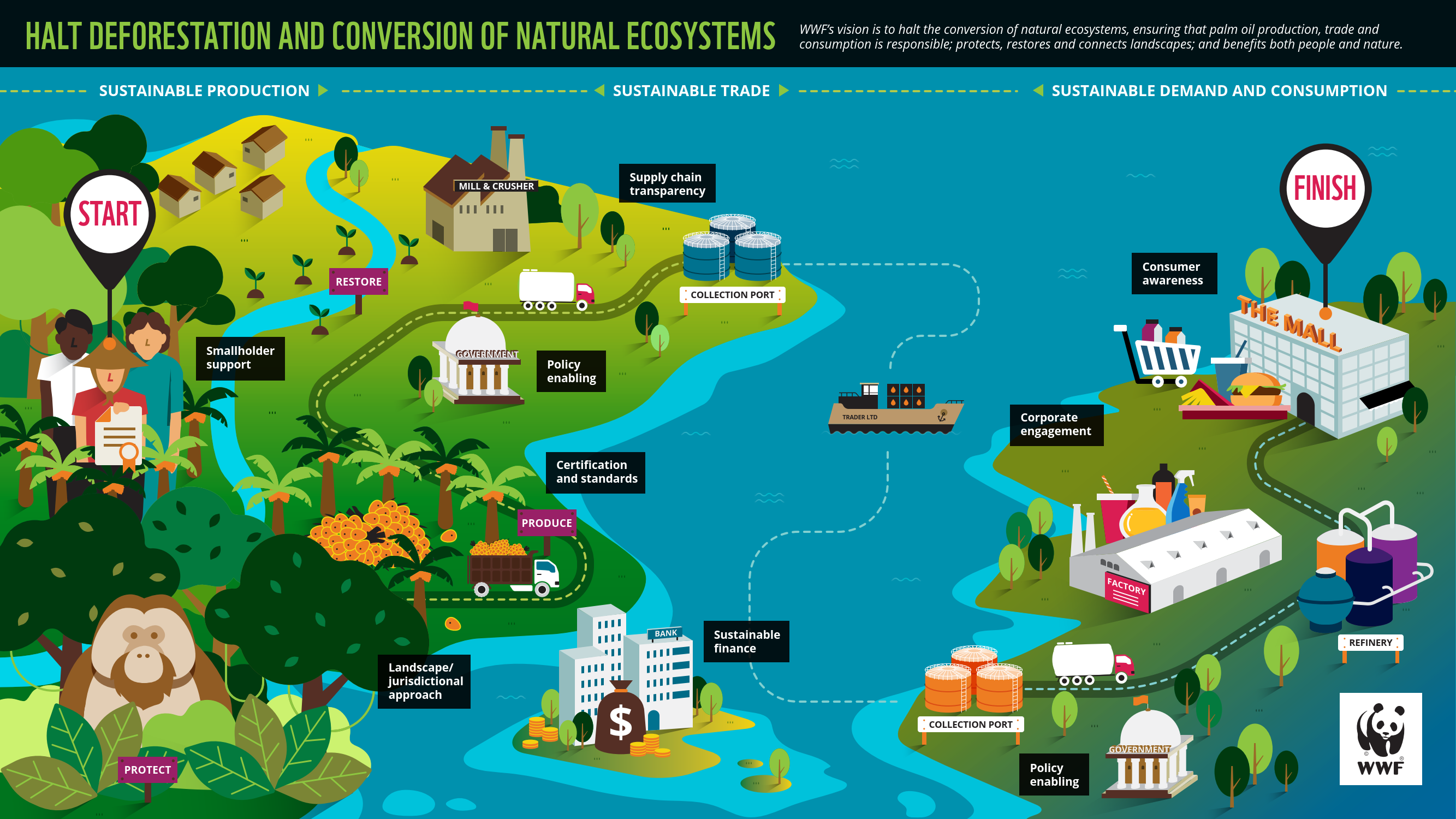The WWF is run at a local level by the following offices...
Palm oil contributes substantially to many local and national economies, especially those in southeast Asia. The palm oil industry supports more than 4 million jobs and 2 million smallholders in Indonesia and Malaysia.
Unsustainable agricultural practices related to palm oil have direct consequences on natural landscapes in southeast Asia. Indonesia and Malaysia alone account for approximately 70% of land used globally for palm oil plantations and produce up to 80% of the world's palm oil supply. They are also home to some of the most important biodiversity hotspots on the planet.
As more than 60% (74 million metric tonnes) of the world's palm oil is consumed in Asia, there is a responsibility to focus efforts on supporting sustainable palm oil consumption in the region.
The Asia Sustainable Palm Oil Links (ASPOL) programme aims to remove deforestation from palm oil supply chains and increase sustainable production and consumption of RSPO certified sustainable palm oil in Asia. The programme is being implemented across the two largest palm oil producing countries (Indonesia and Malaysia), the two largest consuming countries (China and India) and the region’s main trading hub (Singapore). Through this programme, WWF is adopting a whole value chain approach with activities aimed at driving sustainable production, trade and consumption.

Sustainable production: The ASPOL programme is being carried out across six landscapes in Malaysia (Tabin, Tawau and Sugut) and Indonesia (Tesso Nilo, Sintang and South Papua). Interventions follow the “protect, produce and restore” approach to landscape management.
Sustainable trade: A small number of traders control the majority of palm oil production. In line with growing demand from buyers for traders to act on sustainability commitments, the ASPOL programme seeks to support traders in meeting their existing commitments to no deforestation, no development on peat and no exploitation (NDPE).
Sustainable demand and consumption: India and China are the world’s largest importers of palm oil, but the current demand for RSPO certified sustainable palm oil in these countries is very low. The ASPOL programme seeks to overcome some of the key barriers to sustainable palm oil uptake in these markets through engagement with key buyers and the general public.
For more information, please contact Phillippa Walker, WWF ASPOL Programme Manager: pwalker@wwf.sg